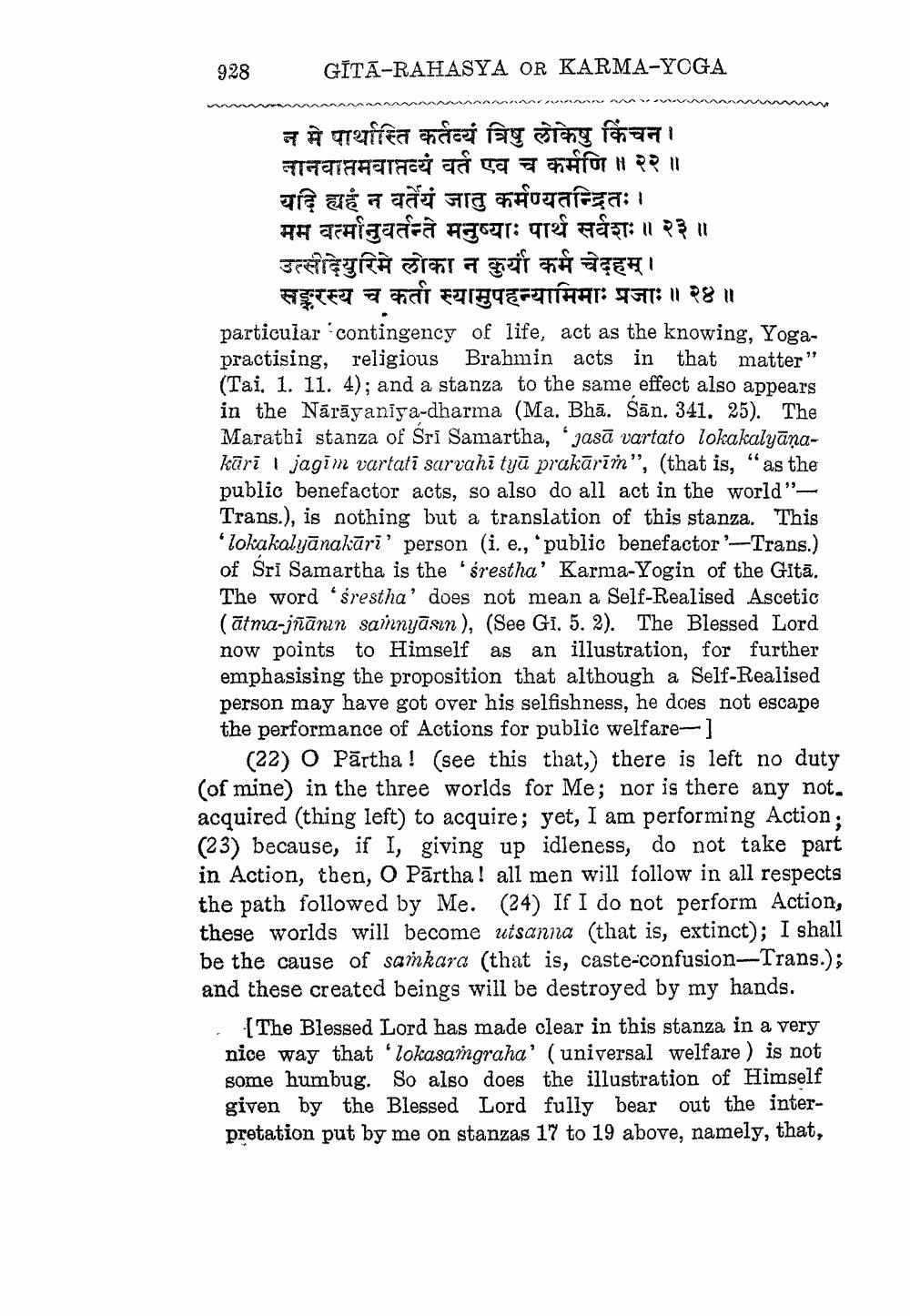________________
928
GÍTA-RAHASYA OR KARMA-YOGA
न मे पार्थास्ति कर्तव्यं त्रिषु लोकेषु किंचन । नानवाप्तमवाप्तव्यं वर्त एव च कर्मणि ॥ २२ ॥ यदि यह न वर्तेयं जातु कर्मण्यतन्द्रितः। मम वानुवर्तन्ते मनुष्याः पार्थ सर्वशः॥ २३॥ उत्तौदेयुरिमे लोका न कुर्या कर्म चेदहम् ।
सङ्करस्य च कर्ता स्यामुपहन्यामिमाःप्रजाः॥२४॥ particular contingency of life, act as the knowing, Yogapractising, religious Brahmin acts in that matter" (Tai 1. 11. 4): and a stanza to the same effect also appears in the Nārāyaniya-dharma (Ma. Bhā. Sān. 341. 25). The Marathi stanza of Sri Samartha, pasā vartato lokakalyānakūrī jagim vartati sarvahi tyā prakārīín", (that is, “as the public benefactor acts, so also do all act in the world"Trans.), is nothing but a translation of this stanza. This 'lokakalyānakūri' person (i. e., 'public benefactor'-Trans.) of Sri Samartha is the 'srestha' Karma-Yogin of the Gitā. The word 'srestha' does not mean a Self-Realised Ascetic (ātma-jñānın sainnyāsın), (See G1. 5. 2). The Blessed Lord now points to Himself as an illustration, for further emphasising the proposition that although a Self-Realised person may have got over his selfishness, he does not escape the performance of Actions for public welfare-]
(22) O Pārtha ! (see this that, there is left no duty (of mine) in the three worlds for Me; nor is there any not. acquired (thing left) to acquire; yet, I am performing Action; (23) because, if I, giving up idleness, do not take part in Action, then, O Pārtha! all men will follow in all respects the path followed by Me. (24) If I do not perform Action, these worlds will become utsanna (that is, extinct); I shall be the cause of samkara (that is, caste-confusion-Trans.); and these created beings will be destroyed by my hands.
[The Blessed Lord has made clear in this stanza in a very nice way that 'lokasamgraha' (universal welfare ) is not some humbug. So also does the illustration of Himself given by the Blessed Lord fully bear out the interpretation put by me on stanzas 17 to 19 above, namely, that,




